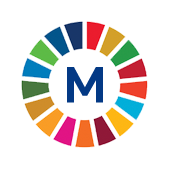 6.b.1 Level of participation of service users / communities in rural drinking water planning programsMetadataPeriod: Every three yearsYear: 2025 |
 6.b.1 Level of participation of service users / communities in rural drinking water planning programsMetadataPeriod: Every three yearsYear: 2025 |
| METADATA |
| Indicator information |
| Definition and methodology |
| Data source type and data collection method |
| Notes |
| ID of global indicator |
| Metadata update |
| Global metadata |
| Indicator information | Top |
| Indicator | |
6.b.1 Level of participation of service users / communities in rural drinking water planning programs | |
| Global indicator name | |
6.b.1 Proportion of local administrative units with established and operational policies and procedures for participation of local communities in water and sanitation management | |
| Target | |
6.b Support and strengthen the participation of local communities in improving water and sanitation management | |
| Goal | |
Goal 6. Ensure availability and sustainable management of water and sanitation for all | |
| Definition and methodology | Top |
| Definition | |
The indicator assesses the percentage of local administrative units (as defined by the national government) that have an established and operational mechanism by which individuals and communities can meaningfully contribute to decisions and directions about water and sanitation management.
The indicator Proportion of local administrative units with established and operational policies and procedures for participation of local communities in water and sanitation management asured by the Proportion of countries with clearly defined procedures in law or policy for participation by service users/communities in planning program in water and sanitation management, and hygiene promotion and the Proportion of countries with high level of users/communities participating in planning programs in water and sanitation management, and hygiene promotion.
Levels of participation: 3 = high; 2 = moderate; 1 = low; 0 = data unavailable. | |
| Methodological explanations | |
Stakeholder participation is essential to ensure the sustainability of water and sanitation management options over time, e.g. the choice of appropriate solutions for a given social and economic context, and the full understanding of the impacts of a certain development decision. Defining the procedures in policy or law for the participation of local communities is vital to ensure needs of all the community is met, including the most vulnerable and also encourages ownership of schemes which in turn contributes to their sustainability.
Local administrative units refers to municipalities, or other local community-level units covering both urban and rural areas to be defined by the government.
Policies and procedures for participation of local communities in water and sanitation management would define a formal mechanism to ensure participation of users in planning water and sanitation activities.
A policy or procedure is considered to be established if the mechanism for participation of local communities is defined in law or has been formally approved and published. It is considered to be operational if the policy or procedure is being implemented, with appropriate funding in place and with means for verifying that participation took place. | |
| Method of calculation | |
The UN-Water Global Analysis and Assessment of Sanitation and Drinking-Water (GLAAS) questionnaire provides information on whether there are “clearly defined procedures in laws or policies for participation by service users (e.g. households) and communities in planning programs”.
For countries that have data available from the local administrative unit level, they are asked to provide data on the number of local administrative units for which policies and procedures for local participation (i) exist, and (ii) are operational, as well as (iii) the number of local administrative units assessed, and (iv) the total number of units in the country.
The indicator is computed as (ii) the number of local admin units with operation policies and procedures for local participation divided by (iv) the total number of local administrative units in the country. | |
| Unit of measure | |
Score | |
| Available disaggregation | |
| Territorial level | |
Republic of Serbia | |
| Data source type and data collection method | Top |
| Data source | |
GLAAS - UN-Water initiative Global Analysis and Assessment of Sanitation and Drinking-Water | |
| Periodicity of data collection | |
Every three years | |
| Notes | Top |
| ID of global indicator | Top |
C060b01 | |
| Metadata update | Top |
| 5/6/2025 | |
| Global metadata | Top |
https://unstats.un.org/sdgs/metadata/files/Metadata-06-0b-01.pdf | |